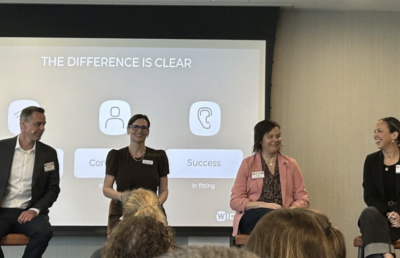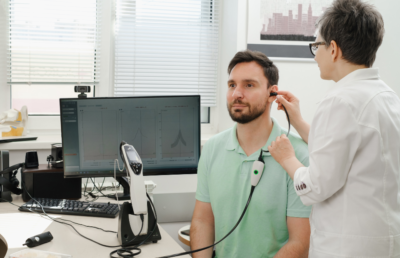Most of the time, when you mention the phrase “hearing loss”, people tend to imagine an older person. After all, as a person gets to be 65, the odds of having some hearing loss are 1 in 3, and they increase to 1 in 2 above 75 years of age. However, there’s a more insidious kind of hearing loss that we should also pay attention to—that in children. Hearing loss in children could be the result of genetics, an illness, or an accident, but whatever the cause, hearing loss can dramatically impact a child’s development.
One big thing parents should be aware of is ear infections. Also known as otitis media, they are the most frequently diagnosed disease in infants and young children. Three out of every four children have at least one episode of otitis media before their third birthday, and one in two of them have three or more ear infections in their first three years.
Every ear infection presents a danger of damage to the eardrum, the bones of the ear, or even the hearing nerve can occur and cause a permanent, sensorineural hearing loss.
There’s not much parents can do to prevent the occurrence of ear infections. However, parents should always keep an eye out for the classic signs of hearing loss, particularly after their child has a hearing infection. Children with hearing loss can experience the following negative effects on their development:
- Delayed speech and language skills
- Learning problems in school
- Feeling bad about himself
- Having trouble making friends
It’s not surprising that hearing loss can seriously impact a child’s development. Think about it: one of the main ways in which we take in information about the world isn’t functioning properly.
The average deaf person reads at a 4th grade level, and this is entirely due to their hearing loss.
However, early detection can help to overcome this disparity. Earlier is always better when it comes to identifying hearing loss, so the problem can be corrected. That’s why, if there’s any question of hearing loss at all, parents should get their child tested by a certified audiologist right away.
Critical language development age is 0-3, so when children miss this time, their speech and language is affected. If the problem is remedied in time, the child frequently has the opportunity to catch up to their peers. Parents will often see a night and day difference in their child’s behavior once the hearing loss is remedied. This is similar to parents who get their child’s vision corrected and see them perform much better in school, sports, etc.
If you think your child may be experiencing hearing loss, don’t wait. Get some piece of mind by scheduling an appointment with us today.





